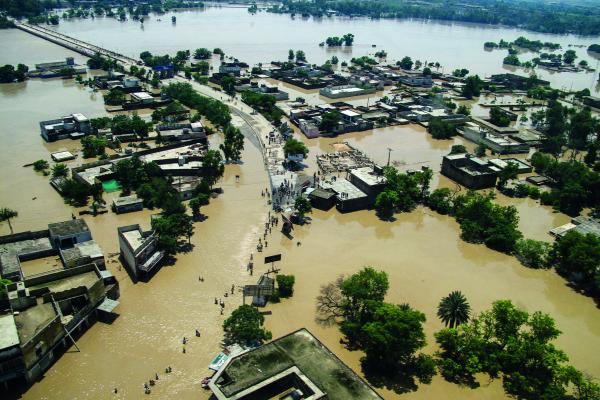
Right now, Pakistan is reeling from devastating floods which left a third of the country underwater. As the country grapples with the effects of a changing climate, it’s children who are being left behind.
Millions out of school
Currently, there are an estimated 22.8 million children in Pakistan unable to attend school. Many of these children are refugees whose families escaped from Afghanistan in the wake of armed conflict. However, climate change poses another threat: in the last few months, Pakistan has experienced some of its deadliest floods in years.
“Schools have been badly damaged, and many people have been forced to leave their homes. The danger of new flooding remains high,” says VSO Education Officer Mir Afzal, on the ground in Pakistan.
“When people experience this kind of devastation, they focus on immediate survival – finding shelter, accessing essential healthcare, and ensuring their families are fed. Girls’ education becomes a secondary concern and is also often neglected by humanitarian response planning,” says VSO’s Country Director for Pakistan, Hashim Bilal.
One thing is becoming increasingly clear: education cannot wait. Schools are so important for children to be happy and healthy and to fulfil their potential. Schools offer structure and routine amidst the chaos.
Nazia’s story
Take 7-year-old Nazia, for example, who lives in a rural region of Pakistan. All she wants is to go to school, but after contracting polio as a young child, walking became painful for her, and suddenly school became out of reach:
“I used to sit beside the door of my house in the morning and watch children going to school,” says Nazia. “I wished to go to school and learn new things like others, but I was unable to walk to the school on my legs. It was too far away.”
And, sadly, the children who struggle the most are the ones who already face barriers: children with disabilities, children living in poverty, girls and refugees.
Right now, VSO is covering school costs so children can re-enter school, and volunteers are campaigning on the importance of girls’ education, speaking with parents and local authorities. Volunteers are also helping adapt schools to meet the needs of children with disabilities. And, VSO has helped support the introduction of lessons on climate change, teaching children how to protect themselves during natural disasters.
In response to the recent flooding, VSO partners, together with community volunteers, have opened two temporary learning centres in the wake of the floods which will serve as models to be adopted at government level.
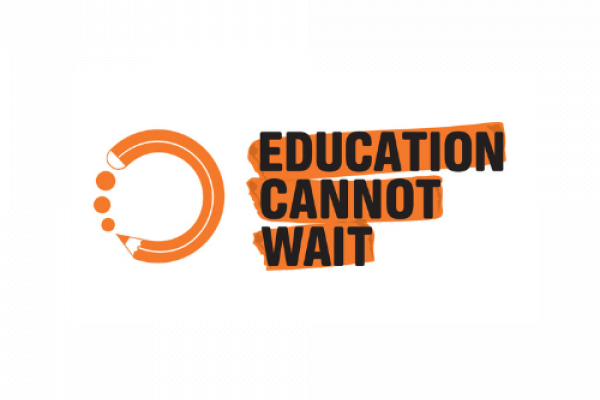
Now, Nazia has been able to join a nearby VSO-run education centre, where she has proved herself to be a bright and capable student.
“I have made good friends and I play puzzles with them. I’m learning my alphabet and how to count,” Nazia says with pride.
But there are still so many children out of school that need VSO’s support. In the next three years, we want to help 40,000 refugee children, girls and children with disabilities into school. Click here if you would like to donate to help us reach them.
Read more
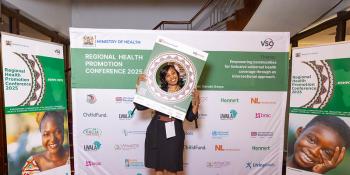
In photos: Our Regional Health Promotion Conference 2025
Check out some of our favourite photos from Regional Health Promotion Conference (RHPC25). This event sought to reimagine Universal Health Coverage through the lens of intersectionality.
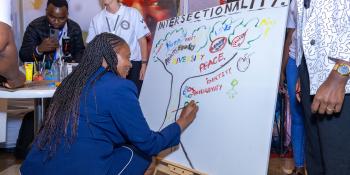
Using intersectionality to create healthy beginnings and hopeful futures
World Health Day brings global attention to the urgent need to end preventable maternal and newborn deaths. Learn more about how our Regional Health Promotion Conference is tackling these issues head on.
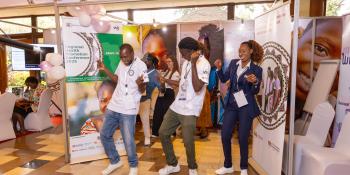
Highlights from the Regional Health Promotion Conference 2025
The Regional Health Promotion Conference 2025 reimagined Universal Health Coverage (UHC) through the lens of intersectionality, by bringing together experts from across East Africa and beyond.
